
Bourdon: The Heartbeat of Port-au-Prince
Nestled in the vibrant capital of Haiti, Bourdon is a fascinating blend of culture, history, and modernity. This neighbourhood offers a unique glimpse into the daily lives of the locals while boasting an array of attractions that captivate tourists from around the world. Bourdon is known for its bustling streets, lined with colourful markets and street vendors selling everything from fresh produce to handcrafted souvenirs. The lively atmosphere is enhanced by the rhythmic beats of Haitian music that seem to echo from every corner, making it impossible not to get swept up in the local culture. One of the highlights of Bourdon is its proximity to some of Port-au-Prince's most significant landmarks. The Iron Market, a historic structure that has been a hub of activity for over a century, is just a short distance away. Here, you can immerse yourself in the local commerce and pick up unique items that tell the story of Haiti's rich heritage. For those interested in art and history, the neighbourhood is also close to the Musée du Panthéon National Haïtien (MUPANAH), where you can explore the impressive collections that showcase the nation's past. Additionally, the vibrant murals and street art throughout Bourdon offer a visual feast that reflects the creativity and resilience of the Haitian people. Bourdon's culinary scene is another reason to visit, with numerous eateries offering delicious Haitian cuisine. From street food stalls to cozy restaurants, you can savor traditional dishes like griot (fried pork), tassot (fried beef), and freshly caught seafood. The flavours are rich and unforgettable, making every meal an adventure in itself. In Bourdon, you will also find a variety of accommodations ranging from budget-friendly guesthouses to more luxurious options. This makes it an ideal base for exploring Port-au-Prince and the surrounding areas. Whether you're a history buff, a foodie, or simply looking to experience the vibrant Haitian culture, Bourdon has something to offer every traveler.
Local tips in Bourdon
- Visit the Iron Market early in the morning to avoid the crowds and get the best selection of goods.
- Try local street food for an authentic taste of Haitian cuisine; it's both delicious and budget-friendly.
- Wear comfortable shoes as the streets can be uneven and you'll likely do a lot of walking.
- Always carry some local currency (Gourdes) as not all vendors accept credit cards.
- Engage with locals to learn more about their culture and traditions; they are often very welcoming and willing to share their stories.
Bourdon: The Heartbeat of Port-au-Prince
Nestled in the vibrant capital of Haiti, Bourdon is a fascinating blend of culture, history, and modernity. This neighbourhood offers a unique glimpse into the daily lives of the locals while boasting an array of attractions that captivate tourists from around the world. Bourdon is known for its bustling streets, lined with colourful markets and street vendors selling everything from fresh produce to handcrafted souvenirs. The lively atmosphere is enhanced by the rhythmic beats of Haitian music that seem to echo from every corner, making it impossible not to get swept up in the local culture. One of the highlights of Bourdon is its proximity to some of Port-au-Prince's most significant landmarks. The Iron Market, a historic structure that has been a hub of activity for over a century, is just a short distance away. Here, you can immerse yourself in the local commerce and pick up unique items that tell the story of Haiti's rich heritage. For those interested in art and history, the neighbourhood is also close to the Musée du Panthéon National Haïtien (MUPANAH), where you can explore the impressive collections that showcase the nation's past. Additionally, the vibrant murals and street art throughout Bourdon offer a visual feast that reflects the creativity and resilience of the Haitian people. Bourdon's culinary scene is another reason to visit, with numerous eateries offering delicious Haitian cuisine. From street food stalls to cozy restaurants, you can savor traditional dishes like griot (fried pork), tassot (fried beef), and freshly caught seafood. The flavours are rich and unforgettable, making every meal an adventure in itself. In Bourdon, you will also find a variety of accommodations ranging from budget-friendly guesthouses to more luxurious options. This makes it an ideal base for exploring Port-au-Prince and the surrounding areas. Whether you're a history buff, a foodie, or simply looking to experience the vibrant Haitian culture, Bourdon has something to offer every traveler.
Iconic landmarks you can’t miss
Champ de Mars
Experience the beauty and history of Champ de Mars, a cultural oasis in Port-au-Prince, Haiti, perfect for relaxation and exploration.
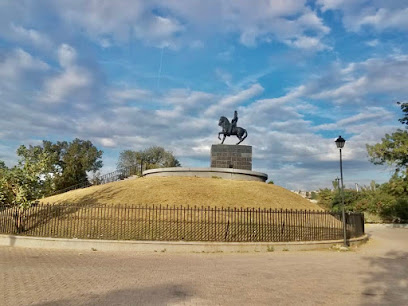
Place Saint-Pierre
Discover the calm allure of Place Saint-Pierre, a serene park in Port-au-Prince perfect for relaxation and cultural experiences amidst vibrant surroundings.
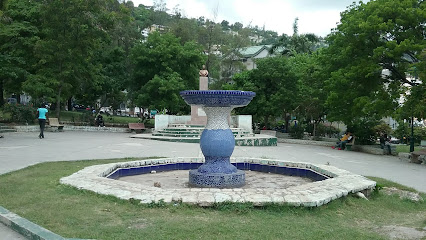
The National Pantheon Museum
Explore the legacy of Haiti at The National Pantheon Museum, a heritage site showcasing the rich history and culture of this vibrant nation.
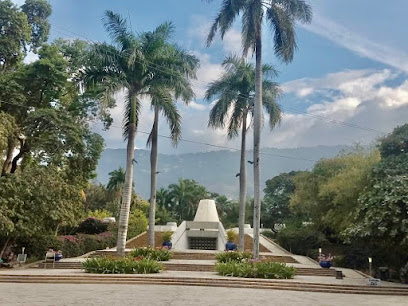
Parc Historique De La Canne À Sucre
Explore the rich history and natural beauty of Parc Historique De La Canne À Sucre in Port-au-Prince, a must-visit memorial park in Haiti.
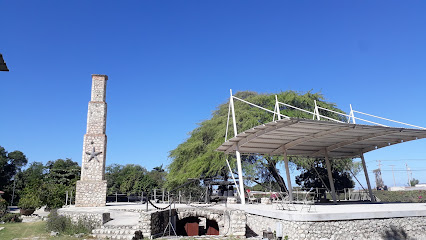
Jean-Jacques Dessalines Monument
Discover the Jean-Jacques Dessalines Monument in Port-au-Prince, a powerful symbol of Haiti's fight for independence and a testament to its rich cultural heritage.
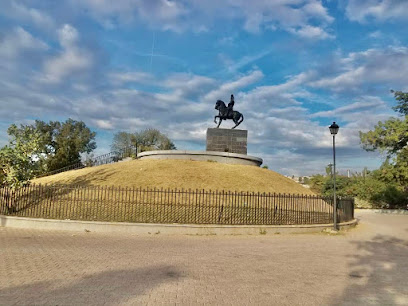
Square Of The Unknown Marron
Unearth the history and cultural significance of the Square Of The Unknown Marron, a landmark honoring Haiti's fight for freedom.
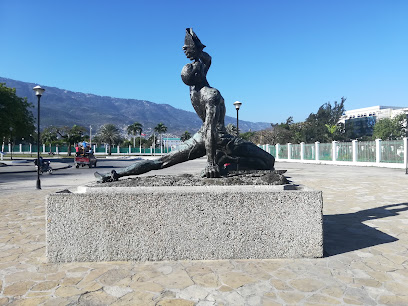
Maison Dufort
Discover the architectural beauty and cultural richness of Haiti at Maison Dufort, a museum that captures the essence of the nation's heritage.
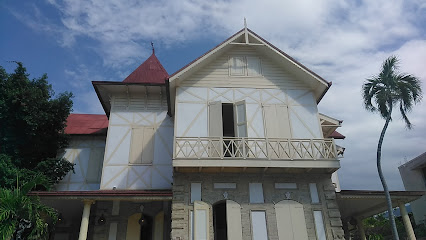
Tour 2004 Bicentennial Monument
Explore the Tour 2004 Bicentennial Monument, a remarkable tribute to Haiti's independence and cultural heritage in the heart of Port-au-Prince.
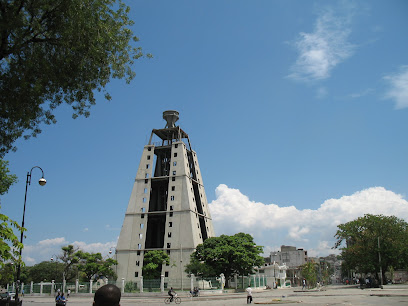
Fontaine Madame Colo
Explore Fontaine Madame Colo, a captivating monument in Port-au-Prince that showcases the artistic heritage and cultural significance of Haiti.

Vallée de Bourdon
Explore Vallée de Bourdon, a serene spiritual center in Port-au-Prince, where rich Haitian traditions and tranquility await every visitor.

BOURDON
Discover the lively nightlife at Bourdon, a premier night club in Port-au-Prince, Haiti, where music, culture, and fun come together for an unforgettable experience.

Bourdon
Experience the vibrant culture and rich history of Bourdon, a hidden gem in Port-au-Prince, offering a unique glimpse into Haitian life.
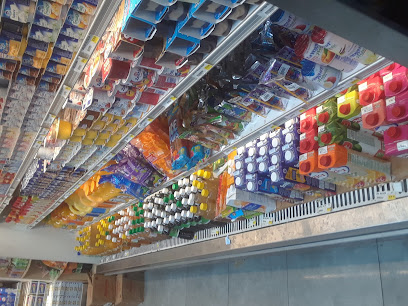
Unmissable attractions to see
Place Saint-Pierre
Explore the lush greenery and vibrant atmosphere of Place Saint-Pierre, a serene park in the heart of Port-au-Prince, perfect for relaxation and cultural experiences.
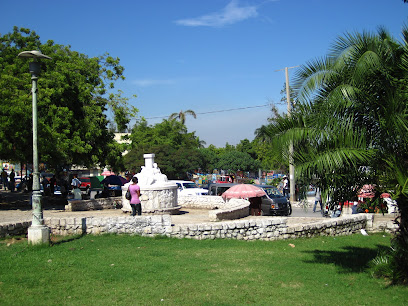
The National Pantheon Museum
Discover Haiti's heritage at The National Pantheon Museum, where history, culture, and art converge to celebrate the nation's rich legacy.
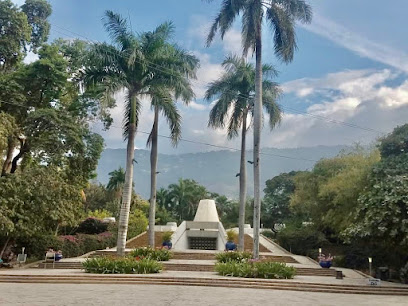
Urbain de Martissant - Habitation Leclerc National Park
Explore the lush landscapes and rich biodiversity of Urbain de Martissant - Habitation Leclerc National Park, a top tourist attraction in Haiti.
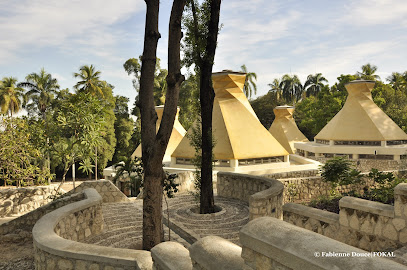
In Martissant Park
Discover the beauty and excitement of Martissant Park, a vibrant oasis in Carrefour, Haiti, perfect for families and cultural explorers alike.
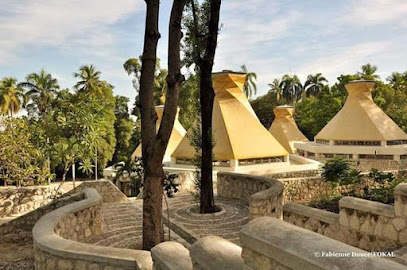
Sainte Anne Church
Explore the stunning Sainte Anne Church in Port-au-Prince, a beautiful Catholic church showcasing rich Haitian culture and spiritual heritage.
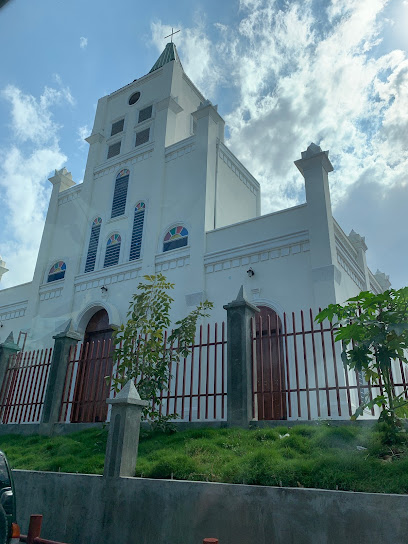
Tour 2004 Bicentennial Monument
Experience the grandeur of the Tour 2004 Bicentennial Monument, a profound tribute to Haiti's rich history and cultural resilience, located in Port-au-Prince.
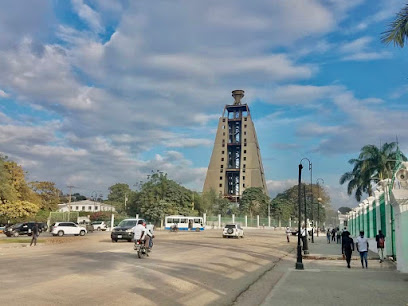
Plaza Hugo Chávez
Explore Plaza Hugo Chávez, a tranquil city park in Port-au-Prince, offering lush greenery, local culture, and a peaceful escape from urban life.
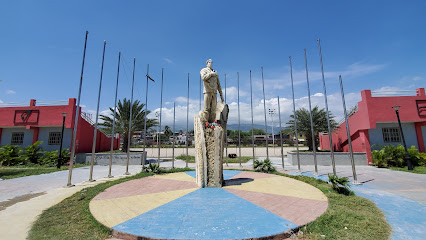
Haïti
Explore the Haïti Museum in Port-au-Prince for a deep dive into the rich culture and history of Haiti through captivating exhibits and local art.
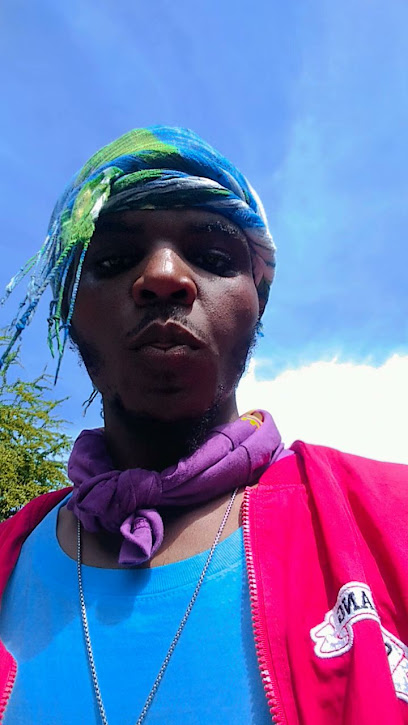
Essential places to dine
Chicken King Restaurant
Experience authentic Haitian cuisine at Chicken King Restaurant in Port-au-Prince – where every bite tells a story.
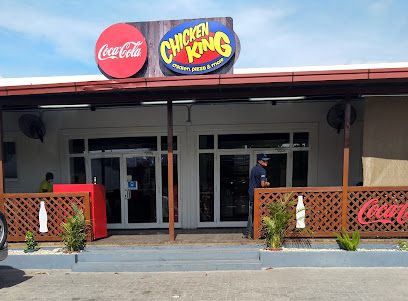
Anti-Stress
Savor authentic Haitian cuisine in a serene setting at Anti-Stress in Port-au-Prince – where every meal is a celebration of flavor.
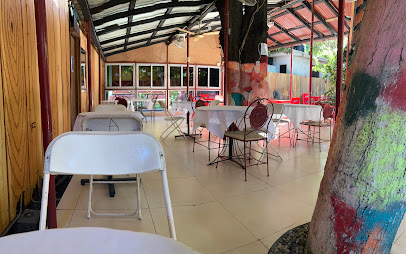
Freaky Snack Bar
Discover the flavors of Haiti at Freaky Snack Bar in Port-au-Prince – where local ingredients meet international cuisine.
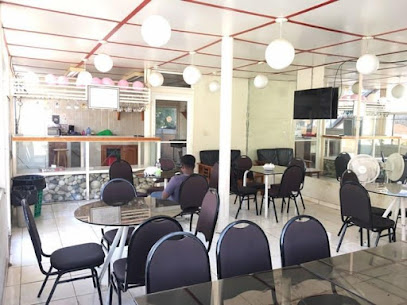
Babako Restaurant
Discover the rich culinary heritage of Haiti at Babako Restaurant in Port-au-Prince, where every dish tells a story.
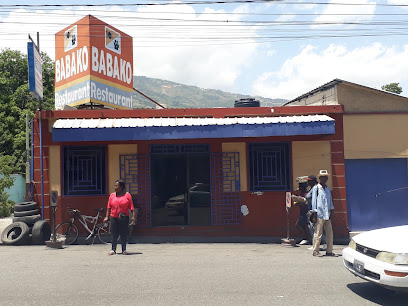
Délices à la Carte
Experience authentic Haitian cuisine at Délices à la Carte in Port-au-Prince – a culinary gem offering vibrant flavors and warm hospitality.
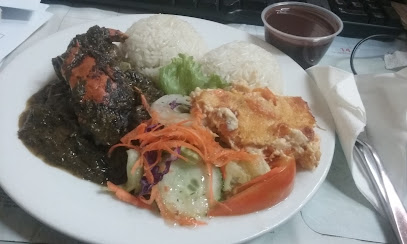
Allaindys resto
Experience authentic Haitian flavors at Allaindys Resto in Port-au-Prince - where every dish tells a story.
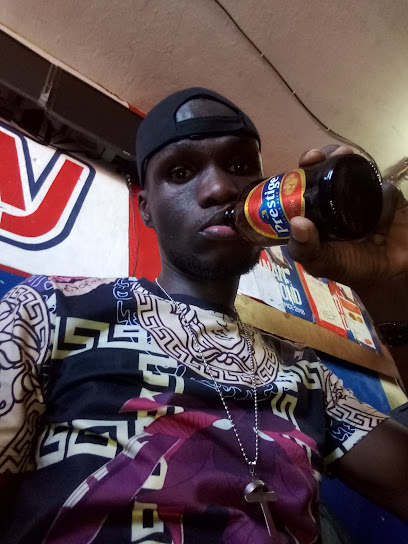
Le grenieur Restaurant
Experience authentic Haitian cuisine at Le Grenieur Restaurant in Port-au-Prince – where tradition meets flavor in every bite.

Stages Bar
Experience authentic Haitian cuisine at Stages Bar in Port-au-Prince—where every dish celebrates Creole culture and flavor.
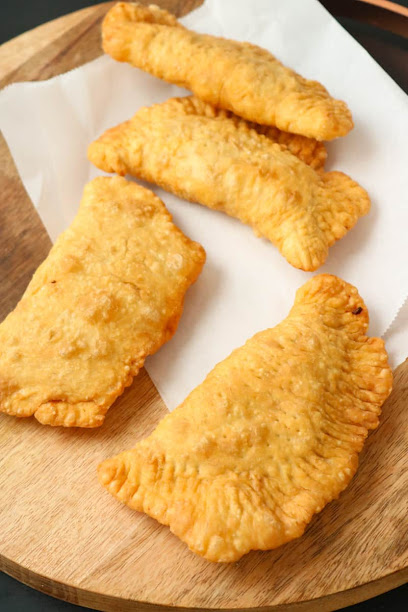
Judd'Ang Resto
Discover authentic Haitian flavors at Judd'Ang Resto in Port-au-Prince – where every dish tells a story.

Cercle des Amis Restaurant
Experience authentic Haitian cuisine at Cercle des Amis Restaurant in Port-au-Prince, where every meal tells a story of rich culture and flavor.

Markets, malls and hidden boutiques
Luminescence
Explore unique fashion accessories at Luminescence, a vibrant blend of local artistry and style in the heart of Petion-Ville, Haiti.
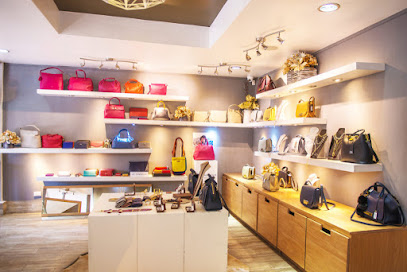
Promenade (Espace Boutiques)
Discover unique shopping and local flavors at the Promenade (Espace Boutiques) in Port-au-Prince, a vibrant hub for tourists and locals alike.
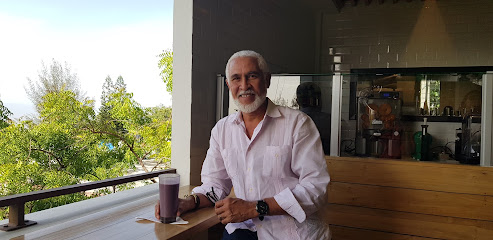
Dressup Haïti
Explore Dressup Haïti for a unique shopping experience featuring vibrant local fashion and handcrafted clothing that embodies the spirit of Port-au-Prince.
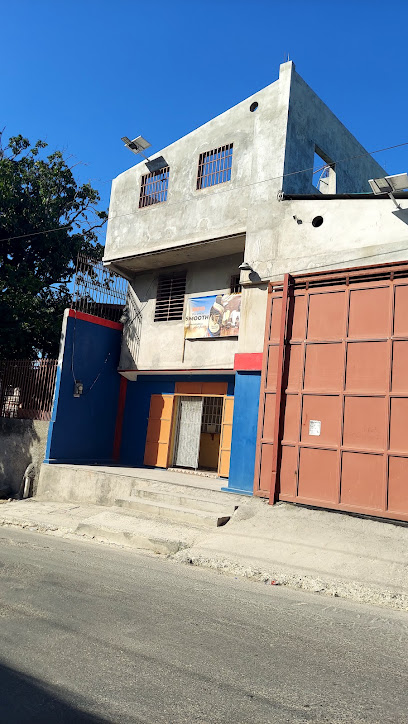
La Créole Boutique
Experience the vibrant flavors of Haiti at La Créole Boutique, your go-to supermarket for local and imported delights in Port-au-Prince.
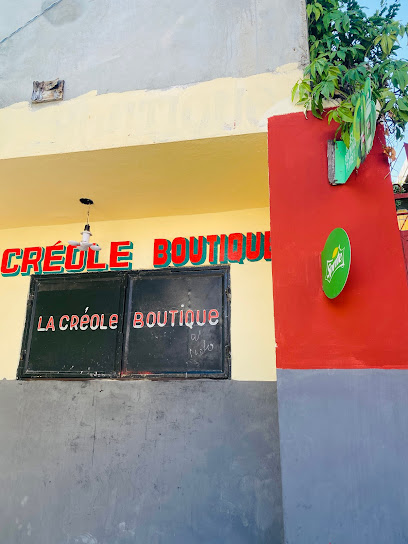
Saga Boutique Haiti
Discover unique fashion at Saga Boutique Haiti, where local designs meet vibrant culture in the heart of Petion-Ville.
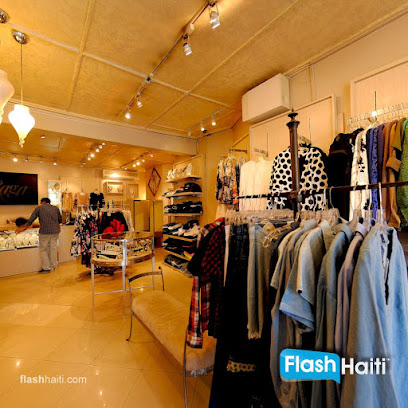
Reine Maison Cadeaux
Explore Reine Maison Cadeaux in Port-au-Prince for unique Haitian gifts and crafts that celebrate the island's vibrant culture.
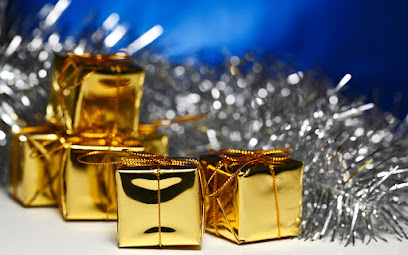
Monestore
Explore Monestore, a vibrant fashion accessories haven in Port-au-Prince, showcasing local artistry and unique beauty products for every visitor.

Port_au_Prince
Discover the essence of Haitian fashion at a premier women's clothing store in Port-au-Prince, where culture meets style in every garment.

John Design 509
Explore the heart of Port-au-Prince at John Design 509, where unique Haitian crafts meet unforgettable shopping experiences.
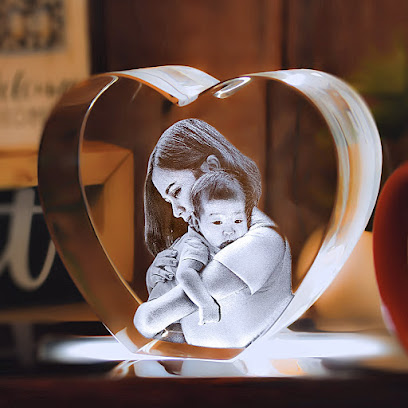
Elchristo Haïti
Explore the vibrant artistry of Haiti at Elchristo Haïti, a boutique celebrating local craftsmanship in the heart of Port-au-Prince.

Essential bars & hidden hideouts
House of Beer Haiti
Experience the vibrant nightlife at House of Beer Haiti, where local brews meet delicious food in an inviting atmosphere.
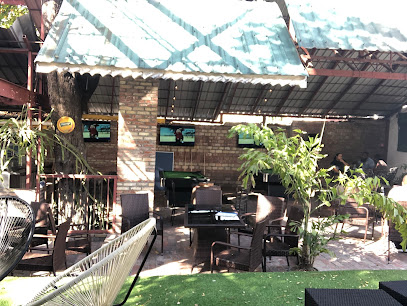
Vivoir Club
Experience the vibrant nightlife at Vivoir Club, a lively bar in Port-au-Prince offering delightful drinks and infectious music that embodies Haitian culture.

CHICAGO BAR & TRIPPING ELYSEE P.
Discover the lively atmosphere of Chicago Bar & Tripping Elysee in Port-au-Prince, where local flavors and cultural experiences blend effortlessly.
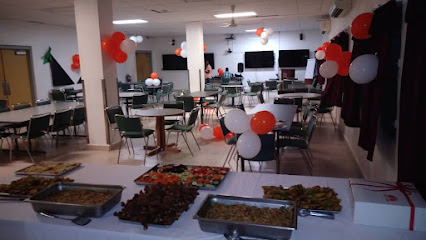
ANGEL'S Bar & Grill
Experience the heart of Port-au-Prince at ANGEL'S Bar & Grill, where vibrant culture meets delicious cuisine and lively entertainment.
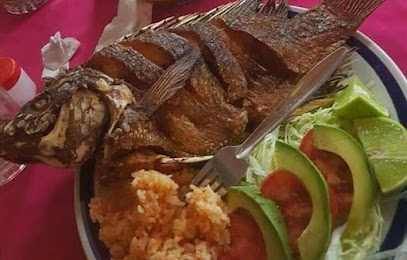
NAHO'S CLUB
Experience the vibrant nightlife and local flavors at Naho's Club, a must-visit bar in the heart of Port-au-Prince, Haiti.
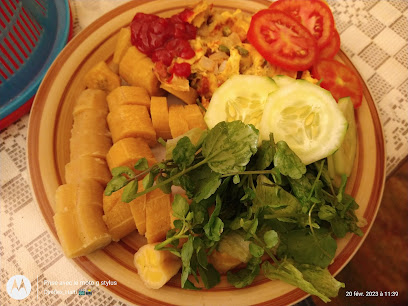
Bouboune restaurant
Experience the vibrant flavors of Haiti at Bouboune Restaurant, a lively bar in Port-au-Prince known for its local cuisine and refreshing drinks.

Tampa Night
Experience the vibrant nightlife of Port-au-Prince at Tampa Night, where a diverse beer selection meets local culture in a lively beer hall atmosphere.
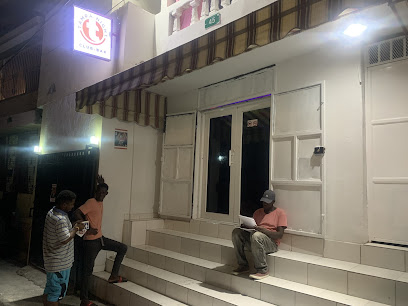
Nazou Bar&Resto
Experience the vibrant nightlife at Nazou Bar&Resto in Port-au-Prince, where local flavors meet lively entertainment in a welcoming atmosphere.
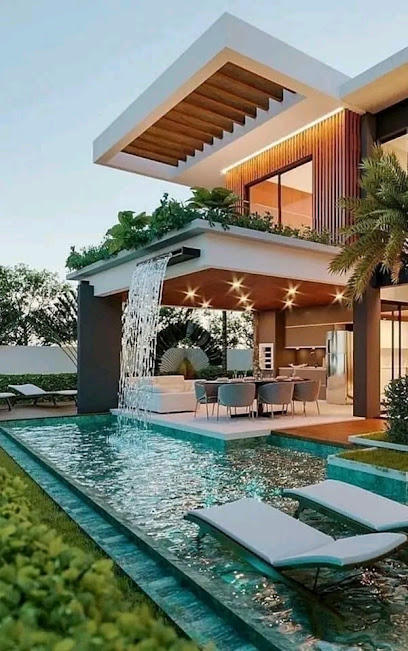
Stages Bar
Discover the vibrant flavors of Creole cuisine at Stages Bar, a cultural gem in Port-au-Prince, Haiti.
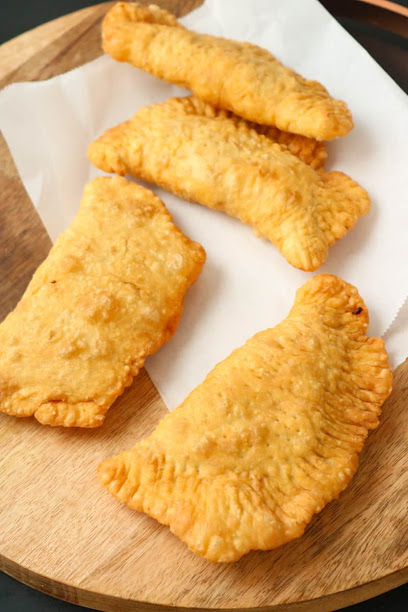
Nounoune restaurant
Experience the vibrant flavors and warm hospitality of Haiti at Nounoune Restaurant in Port-au-Prince, where every meal tells a story.

Local Phrases
-
- HelloBonjou
[bon-zho] - GoodbyeOrevwa
[oh-rev-wah] - YesWi
[wee] - NoNon
[non] - Please/You're welcomeTanpri
[tan-pree] - Thank youMèsi
[meh-see] - Excuse me/SorryPadon
[pah-dohn] - How are you?Kijan ou ye?
[kee-jahn ooh yay] - Fine. And you?Byen. E ou?
[byehn. ay ooh] - Do you speak English?Èske ou pale angle?
[es-keh ooh pah-lay ahn-glay] - I don't understandMwen pa konprann
[mwenn pah kohn-prahn]
- HelloBonjou
-
- I'd like to see the menu, pleaseMwen ta renmen wè meni, tanpri
[mwenn tah ren-men way meh-nee tan-pree] - I don't eat meatMwen pa manje vyann
[mwenn pah mahn-jay vee-yahn] - Cheers!Santé!
[sahn-tay] - I would like to pay, pleaseMwen ta renmen peye, tanpri
[mwenn tah ren-men pay-yay tan-pree]
- I'd like to see the menu, pleaseMwen ta renmen wè meni, tanpri
-
- Help!Èd!
[ayd] - Go away!Ale!
[ah-lay] - Call the Police!Rele Polis!
[reh-lay poh-lees] - Call a doctor!Rele yon doktè!
[reh-lay yohn dohk-tay] - I'm lostMwen pèdi
[mwenn pay-dee] - I'm illMwen malad
[mwenn mah-lahd]
- Help!Èd!
-
- I'd like to buy...Mwen ta renmen achte...
[mwenn tah ren-men ahk-tay] - I'm just lookingMwen jis gade
[mwenn zjee gah-day] - How much is it?Kijan pri sa?
[kee-jahn pree sah] - That's too expensiveSa twò chè
[sah twow shay] - Can you lower the price?Eske ou ka bese pri a?
[es-keh ooh kah beh-zay pree ah]
- I'd like to buy...Mwen ta renmen achte...
-
- What time is it?Kisa lè li ye?
[kee-sah lay lee yay] - It's one o'clockLi senk e demi
[lee sahnk ay deh-mee] - Half past (10)Demi diz
[deh-mee deez] - MorningMaten
[mah-tehn] - AfternoonApremidi
[ah-pray-mee-dee] - EveningAswe
[ah-sway] - YesterdayYe
[yay] - TodayJodi a
[zho-dee ah] - TomorrowDemen
[deh-mehn] - 1En
[ahn] - 2De
[day] - 3Twaz
[twahz] - 4Kat
[kaht] - 5Senk
[sahnk] - 6Sis
[sees] - 7Sèt
[set] - 8Uit
[weet] - 9Nèf
[nef] - 10Dis
[dees]
- What time is it?Kisa lè li ye?
-
- Where's a/the...?Kote...?
[koh-tay] - What's the address?Ki kote adrès la ye?
[kee koh-tay ah-drehs lah yay] - Can you show me (on the map)?Eske ou ka montre mwen (sou kat)?
[es-keh ooh kah mohn-tray mwenn (soo kaht)] - When's the next (bus)?Kilè pwochenn (bis la)?
[kee-leh pwosh-enn beess lah] - A ticket (to ....)Yon tikè (pou ....)
[yohn tee-kay poo]
- Where's a/the...?Kote...?
History of Bourdon
-
Bourdon's history is deeply intertwined with the colonial period of Haiti, specifically during the 18th century when the area began to develop as a residential neighborhood for the affluent class. Wealthy plantation owners built grand houses here, taking advantage of the area's proximity to Port-au-Prince while enjoying a more serene environment away from the bustling port.
-
During the late 18th century, Bourdon, like much of Haiti, was affected by the Haitian Revolution (1791-1804). The struggle for independence from French colonial rule led to significant social and economic changes. Many of the estates in Bourdon were abandoned or repurposed, reflecting the upheaval of the times and the shift towards a society striving for equality and freedom.
-
In the early to mid-20th century, Bourdon evolved as Port-au-Prince expanded. The neighborhood saw an influx of middle-class families, which contributed to its development into a vibrant urban community. This period marked the construction of various civic and cultural institutions that enriched the neighborhood's social fabric.
-
In the latter half of the 20th century, Bourdon became a hub for Haitian culture and arts. The area is home to numerous artists, musicians, and writers who have played a pivotal role in shaping Haiti's cultural narrative. The neighborhood's streets are often filled with art galleries, music venues, and performance spaces that celebrate the rich artistic heritage of the nation.
-
The 2010 earthquake had a devastating impact on Port-au-Prince, including Bourdon. However, the community demonstrated remarkable resilience in the face of adversity. Reconstruction efforts not only focused on rebuilding infrastructure but also on enhancing cultural and social spaces, making Bourdon a symbol of hope and renewal in Haiti's ongoing recovery.
Bourdon Essentials
-
Bourdon is located a short distance from central Port-au-Prince. From the airport, you can take a taxi directly to Bourdon, which typically takes about 30 minutes, depending on traffic. If you are coming from other neighborhoods, local tap-taps (shared minibuses) are a popular option, or you can hire a private taxi. The main roads leading to Bourdon are generally well-traveled, but be prepared for occasional rough patches.
-
Bourdon is relatively small and best explored on foot. However, local tap-taps and motorcycles (motos) can be used for longer distances within the area or to nearby neighborhoods. Taxis are also available, and negotiating fares beforehand is recommended. Bicycles can be rented in some parts of Port-au-Prince, but be cautious of traffic and road conditions.
-
Bourdon is generally considered safe for tourists during the day, but it's essential to remain vigilant, especially at night. Avoid walking alone in poorly lit areas. Areas with higher crime rates include parts of downtown Port-au-Prince, so exercise caution when venturing out. Always keep your belongings secure and avoid displaying valuables.
-
In an emergency, dial 114 for police assistance or 168 for medical emergencies. Familiarize yourself with the location of nearby hospitals and police stations. It's advisable to carry a local SIM card for easier communication. Ensure you have travel insurance that covers emergency situations.
-
Fashion: Do dress modestly, especially in religious places. Avoid wearing revealing clothing. Religion: Do show respect for local customs, such as removing shoes when entering homes. Public Transport: Do be polite and offer your seat to the elderly. Don't eat or drink on public transport. Greetings: Do greet locals with a friendly smile and handshake. Don't interrupt when someone is speaking. Eating & Drinking: Do try local cuisine and accept food offers. Don't refuse hospitality, as it can be seen as impolite.
-
To experience Bourdon like a local, visit the local markets for fresh produce and artisanal goods. Engage with vendors and locals to learn about the neighborhood's culture. Don't miss out on local street food, but be mindful of hygiene. Participate in local festivals if your visit coincides with them, as they offer unique insights into Haitian culture.
Nearby Cities to Bourdon
-
Things To Do in Petionville
-
Things To Do in Jacmel
-
Things To Do in Hinche
-
Things To Do in Saint-Marc
-
Things To Do in Gonaïves
-
Things To Do in Cap-Haïtien
-
Things To Do in Les Cayes
-
Things To Do in Jarabacoa
-
Things To Do in Jérémie
-
Things To Do in Puerto Plata
-
Things To Do in Santo Domingo
-
Things To Do in Samana
-
Things To Do in Salt Cay
-
Things To Do in South Caicos
-
Things To Do in Cockburn Town







